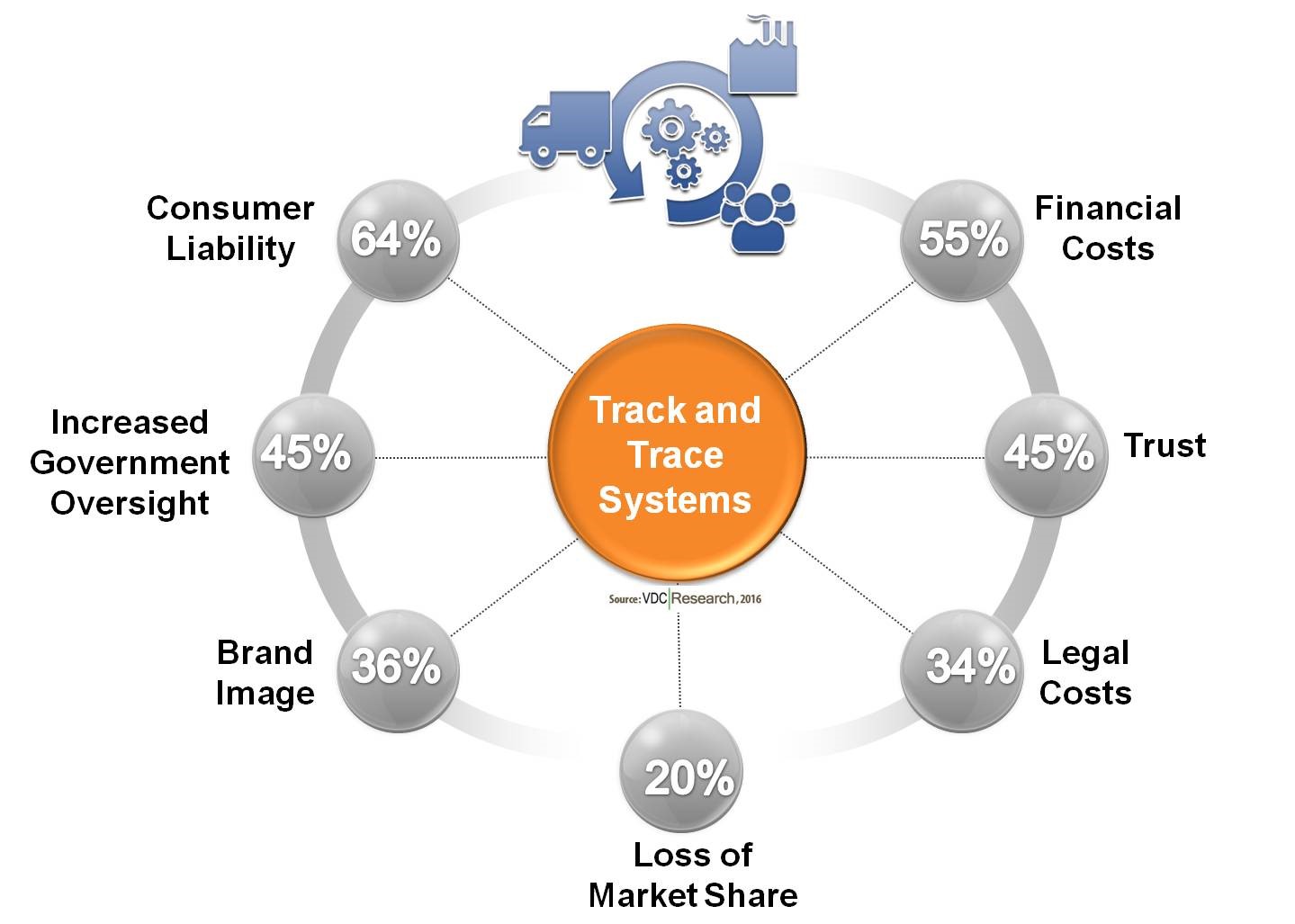AutoID & Data Capture Blog
Blockchain Goes Mainstream with the Announcement of the IBM Blockchain
To tackle the challenges of data management and security in the supply chain and address new regulations surrounding centralized interoperable database implementation, there is rising interest in the blockchain. Today, IBM unveiled the IBM Blockchain at InterConnect 2017 - A blockchain as a service offering for the enterprise. Known to most as the underlying technology supporting Bitcoin digital currency transactions, a blockchain is a digital ledger that uses cryptography to allow participants (each with a unique signature) on a network to use the ledger and record transactions to enable granular traceability. New transactions are cross checked, verified and validated against the blockchain’s history and network’s agreed-upon rules by all nodes (computers of participants) working together to minimize the risk of fraud.
The IBM Blockchain is based on the open-source Hyperledger Fabric technology and adds additional security and integration cloud services on IBM Bluemix. Since the introduction of its blockchain solution in 2016, IBM has tested its blockchain services across industries through partnerships with companies including Walmart (Retail), Maersk (Logistics) and Japan Exchange Group (Finance).
Announced early in March 2017, Maersk, the world's largest container shipping company partnered with IBM to develop a blockchain solution to track transactions among its network of shippers, freight forwarders, ocean carriers, ports and customs authorities freights. The application, currently in the pilot-phase, is designed to save time and costs by shifting current manual paper-based processes to a blockchain-based smart contract system. In 2014, a Maersk study found that a single shipment of goods from East Africa to Europe can be handled by nearly 30 people and organizations with over 200 interactions. The technology has the potential to address accuracy issues and accountability, while also creating a chain of custody. According to Maersk, the application will allow participants in the supply chain to view the progress of goods in transit as well as viewing customs documents, bills of lading and other data that are exchanged in real time. Maersk is also exploring the blockchain for its trade finance business.
Primary factors impacted by an inability to trace items through the supply chain

Source: VDC Research
Similarly, IBM partnered with retail giant, Walmart and Tsinghua University in Beijing to develop a solution to digitally track the movement of pork in China for greater food traceability. Solutions like these come at a time when policymakers, industry groups, and leading manufacturers in recent months begun pushing the adoption of traceability systems on a national scale to address issues ranging from food safety to driver safety and patient safety and to support a consumers’ right to know what is in the product they are purchasing. VDC believes these present an opportunity for the development and exploration of blockchain based traceability solutions as traceability (initiatives and technology) is now established as a vital element in the supply chain, without which companies stand to expose themselves to significant risks and liabilities. According to a recent VDC study, manufacturers cited consumer liability (64%), financial costs (55%), and trust (45%) to be the factors most affected by an inability to trace items in the supply chain. Other concerns include harm to brand image and greater government oversight on business through reviews, monitoring, and supervision by government agencies, programs, and policy implementation.
Until recently, most blockchain solutions had remained largely conceptual - with only a handful of pilot solutions in place. As more blockchain solutions go to market, concerns including transaction and verification speeds, government regulations, cyber security concerns and costs remain and can be significant barriers to adoption. However, developments like the IBM Blockchain can serve to facilitate adoption of blockchain-based solutions across sectors.
For more information and insights about traceability initiatives in the food, pharmaceuticals, and automotive industries be sure to review VDC’s report – Connecting the Dots: What is Driving Traceability Solutions Investment? Please feel free to download the Executive Brief or contact us to learn how to gain access to the full report at info@vdcresearch.com.